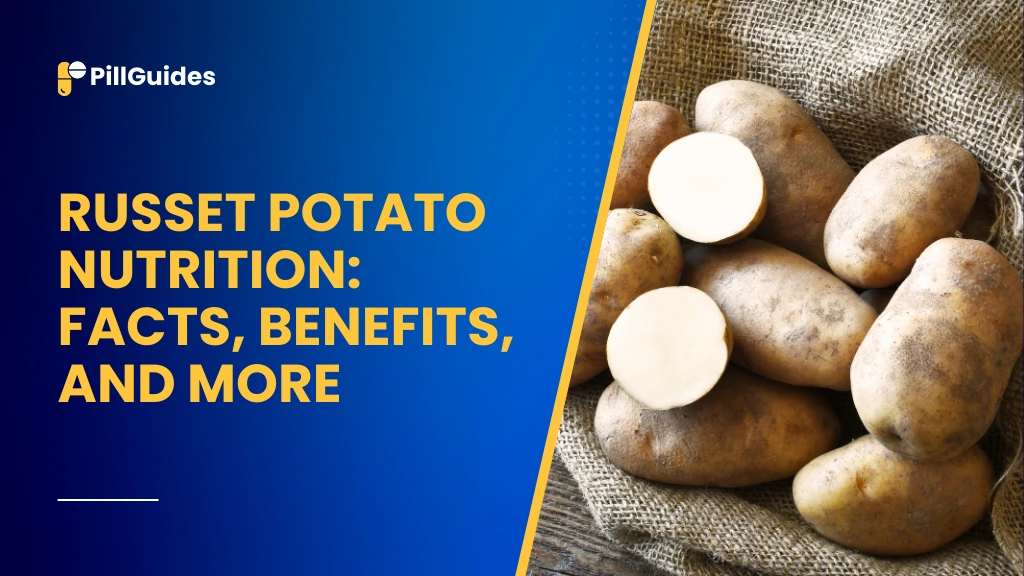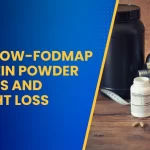Russet potatoes are often at the forefront regarding versatile and nutritious vegetables. Russet potatoes are staples around the world be they mashed, baked, or fried. So what makes these potatoes special from a nutritional point of view? So let’s break down what russet potatoes comprise, their health benefits, and what they’re not, and how you can incorporate them into a balanced diet.
Nutritional Profile of Russet Potatoes
Russet potatoes are much more than a go-to to make you feel comfortable, they provide you with powerful amounts of essential nutrients. Here’s the breakdown for a medium-sized baked russet potato (approximately 173 grams):
- Calories: 168
- Carbohydrates: 37 grams
- Protein: 4.5 grams
- Fat: 0.2 grams
- Fiber: 4 grams
- Vitamin C: 27% of the Daily Value (DV)
- Potassium: 26% of the DV
- Vitamin B6: 20% of the DV
- Iron: 6% of the DV
- Magnesium: 8% of the DV
This makes russet potatoes a nutrient-dense food choice for people wishing for a good supply of complex carbohydrates, dietary fiber, and necessary vitamins and minerals.
Health Benefits of Russet Potatoes
Russet potatoes aren’t just delicious; they also offer a wide range of health benefits:
1. A Great Source of Energy
Russet potatoes are a complex carb, which are digested slowly and provide your body with its primary source of energy.
2. Rich in Potassium
Potatoes are one of the richest sources of this essential mineral which helps to regulate blood pressure, muscle contractions, and nerve function. More potassium than a banana is found in one medium russet potato.
3. For Digestive Health High in Fiber
A healthy digestive system is supported by fiber in russet potatoes, which support regular bowel movements and add nourishment for good gut bacteria.
4. Boosts Immune Health
Russet potatoes are a good source of a powerful antioxidant, vitamin C, which strengthens the immune system, protects the cells from damage, and keeps the skin healthy.
5. Weight Management Support
Russet potatoes may be calorie-dense, but they can help you manage weight if you prepare them well. Their high satiety factor makes you stay full longer.
6. Naturally Gluten-Free
Russet potatoes are gluten-free, which means they are a safe and very tasty choice for people with gluten sensitivity or celiac disease.
7. Supports Heart Health
Russet potatoes, which contain potassium, magnesium, and fiber, work to keep heart health in check by dropping blood pressure and regulating cholesterol levels.
Comparing Russet Potatoes to Other Potato Varieties
Russet potatoes are the best potato varieties in the world, based on size, texture, and nutrient content. Here’s a quick comparison:
| Type | Calories (per 100g) | Fiber | Vitamin C | Best Use |
| Russet Potatoes | 77 | 2.2g | 15% | Baking, mashing, frying |
| Yukon Gold Potatoes | 85 | 1.8g | 20% | Roasting, boiling |
| Red Potatoes | 70 | 2g | 10% | Salads, roasting |
| Sweet Potatoes | 86 | 3g | 47% | Baking, desserts |
Versatile, crisp baked, or fried russet potatoes are high in potassium.
How to Incorporate Russet Potatoes into Your Diet
1. Baked Russet Potatoes
Baking russet potatoes is simple and healthy! Set with Greek yogurt, steamed veggies, or lean protein for a well-balanced meal.
2. Mashed Potatoes
To make mashed potatoes lighter, and healthier, swap heavy cream and butter with low-fat milk or olive oil.
3. Homemade Fries
Cutting russet potatoes into wedges, herbs seasoning, and baking cut russet potatoes is a healthier option for fried potatoes.
4. Potato Soup
Russet potatoes that you add to soups will provide some creamy texture and a dose of goodies like fiber and other nutrients.
5. Grilled Potato Slices
Season olive oil and spices on sliced russet potatoes and grill them for a smoky taste.
Are Russet Potatoes Good for Weight Loss?
When eaten moderately and in a healthy way, russet potatoes can still be part of a weight loss diet. They’re high in fiber and complex carbohydrates so they keep you full longer and reduce the snacking cravings.
For weight loss:
- Don’t fry russet potatoes in oil.
- Lean protein and veggies are a good match.
- The use of portion control to stop overeating.
Common Myths About Russet Potatoes
1. Potatoes Are Fattening
This is false. Russet potatoes are naturally low in fat, and potatoes in general are. That means its preparation method (frying or butter, for example) is what adds to the calorie count.
2. The Russet Potato is Low in Nutrients
Contrary to this belief, russet potatoes are nutritious; and an excellent source of important vitamins and minerals.
3. Potatoes are bad for digestion
Eating potatoes with the skin also adds some fiber and helps keep the digestive tract healthy.
Conclusion
Russet potatoes are a healthy, affordable, and versatile food. They are filled with complex carbohydrates, potassium, fiber, and good vitamins that have various health benefits to the human body if they are prepared right.
Russet potatoes are a great option whether you’re trying to increase your energy levels, maintain digestive health, or just want something gluten-free to add to your meals. What if I told you there is a way to still enjoy their benefits without your health goals relying on them? This is done by preparing them healthily and by finding balance with other nutrient-dense foods.
Disclaimer
This article is for informational purposes only and does not replace professional medical advice. Please consult a healthcare provider or dietitian before making significant changes to your diet, especially if you have specific health conditions.
Read More: One of a Kind Fitness Reactive Balls: Boost Reflexes and Workout Efficiency
FAQs Russet Potato Nutrition
1. Why are russet potatoes important for our nutrition?
Russet potatoes are a great source of potassium, vitamin C, vitamin B6, and fiber all nutrient-dense foods that are important for bone health.
2. Can russet potatoes be eaten by diabetics?
Diabetics can consume russet potatoes in limited portions. Pairing them with protein or healthy fats can help keep blood sugars smooth.
3. How many calories in a medium-sized russet potato?
A medium 168-calorie baked russet potato.
4. A medium 168-calorie baked russet potato.
Russet potatoes don’t directly cause weight gain. But if you’re frying or adding so much butter and cheese, then it can add calories.
5. Are russet potatoes gluten-free?
Russet potatoes are indeed gluten-free naturally so if you are gluten sensitive or have celiac disease they can be eaten.










